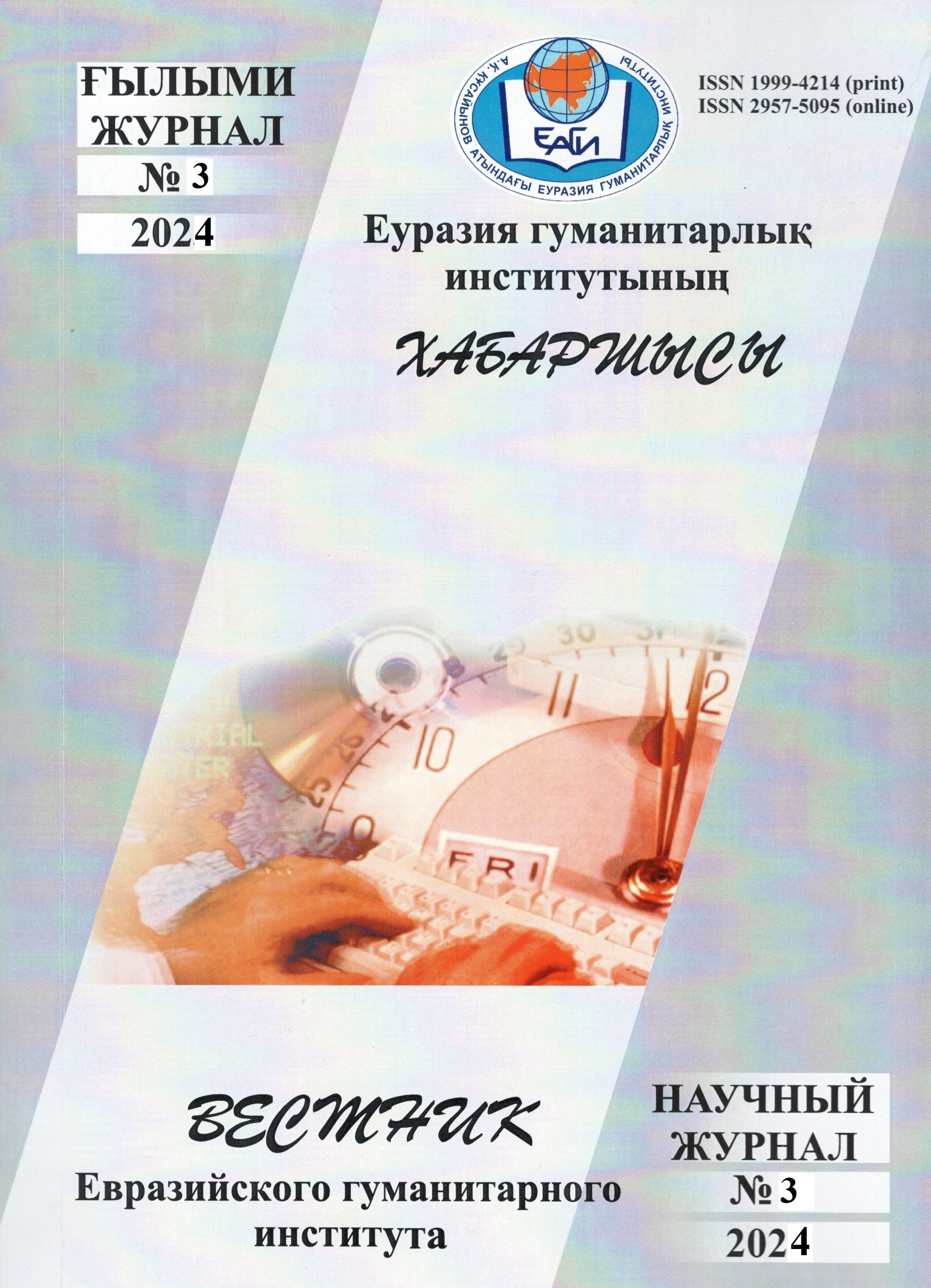*«НӘҺЖ ӘЛ-ФӘРАДИС» ЖӘНЕ ХХ ҒАСЫР БАСЫНДАҒЫ ҚАЗАҚ ЖАЗБА ӘДЕБИЕТІ: РУХАНИ ҮНДЕСТІК ЖӘНЕ ДӘСТҮР ЖАЛҒАСТЫҒЫ
Кілт сөздер:
Алтын Орда, Нәһж әл-фәрадис, Махмұт Кердери, қазақ жазба әдебиеті, рухани үндестік, дәстүр жалғастығы.Аңдатпа
Аңдатпа. Кез келген мемлекеттің қалыптасу тарихында белгілі бір тарихи үдерістердің әсері болуы заңды құбылыс. Егемен Қазақстанның қалыптасу үдерісіндегі маңызды тарихи кезеңнің бірі Алтын Орда кезеңі деуге болады. Бүгінгі таңда аталған дәуірді насихаттауға мемлекеттік деңгейде назар аударылуының өзі бұл кезеңнің шын мәнінде маңызды құбылыс екендігін көрсетіп отыр. Үш жүз жылға жуық салтанат құрып, тарих толқынында ұланғасыр территорияны Қазақ еліне мұра етіп қалдырған бұл мемлекеттің әлемдік өркениетке қосқан үлесі мен саяси-әлеуметтік, тарихи-мәдени, рухани-әдеби мұраларын зерттеудің ерекше маңызы зор. Әсіресе, бұл кезеңде жазып қалдырылған әдеби мұралардың кейінгі дәуірлерде қазақтың ұлттық дүниетанымының қалыптасуына жасаған әсерін зерттеп, бүгінгі жұртшылыққа насихаттау әдебиетші ғалымдардың негізгі міндеті дер едік. Міне, сондай әдеби жәдігерлердің бірі Махмұт бин Ғали әл-Бұлғари әс-Сараи әл-Кердеридің діни-дидактикалық сарында жазылған «Нәһж әл-фәрадис» (Жұмақтықтардың ашық жолы) атты еңбегі.
Мақалада орта ғасырлық әдеби жәдігердің түркі мұсылман халықтары әдебиетіндегі алатын орны мен ХХ ғасыр басындағы қазақ жазба әдебиетіне тигізген әсері, ақындар шығармалары арасындағы рухани үндестік пен дәстүр жалғастығы салыстырмалы түрде зерттелді.


